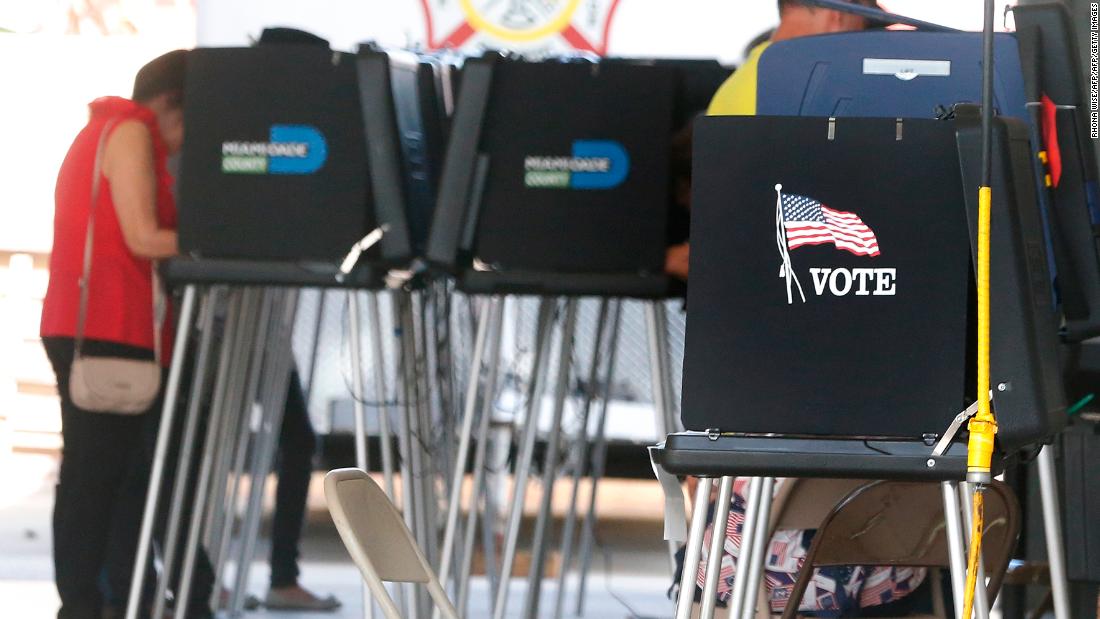
Those Florida counties have, essentially, been running English-only elections: voter registration materials, guides, instructions, ballots and other materials were only provided in English. Florida resident Marta Valentina Rivera Madera and a number of Latino advocacy and civic engagement groups say those elections are disenfranchising the votes of Spanish-speakers across Florida. Their lawsuit, brought in 2018, is trying to change that.
The federal Voting Rights Act says that if a student is taught in an American school where the primary language is not English, the student can't be denied the right to vote just because they cannot understand English. And because Spanish is the predominate language used and taught in Puerto Rico's schools, that means English-only elections in Florida could prevent Puerto Ricans from being able to vote.
The plaintiffs say the US Census Bureau's American Community Survey found that just over 30,000 Puerto Rican adults in the 32 counties are not proficient in English. That survey took place between 2011 and 2015 and Florida's seen a marked increase in its Puerto Rican population.
Many have fled the devastation caused by Hurricane Maria in the US territory Rivera is just one of the many who fled the destruction, having lived in Puerto Rico for 70 years until moving to the Gainesville, Florida, area.
"I am looking forward to exercising my right to vote as I always have in Puerto Rico," Rivera said in a 2018 press release. "I want to be able to vote in the language I speak best because I take voting very seriously and have always educated myself about the candidates and issues before casting my ballot."
On Friday, US District Court Chief Judge Mark Walker sided with Rivera, in part, and issued a preliminary injunction, saying those English-only elections are in violation of the Voting Rights Act.
CNN has reached out to the plaintiff coalition for comment.
While Walker praised Florida's governor and secretary of state for starting the process to bring the state into compliance with the federal law, he said more needs to be done now and in time for 2020.
By the time votes are cast in Florida's 2020 primary elections on March 17, 2020, 32 of Florida's 67 counties must provide official, paper or electronic, ballots in Spanish -- that includes early voting and vote-by-mail ballots. Those counties are: Alachua, Bay, Brevard, Charlotte, Citrus, Clay, Columbia, Duval, Escambia, Flagler, Hernando, Highlands, Indian River, Jackson, Lake, Leon, Levy, Manatee, Marion, Martin, Monroe, Okaloosa, Okeechobee, Pasco, Putnam, St. Johns, St. Lucie, Santa Rosa, Sarasota, Sumter, Taylor, and Wakulla.
The counties also are required under the ruling to provide Spanish-language election-related materials, both hard-copy and electronic: voter registration cards, applications, voter instructions, guides, polling place changes, sample ballots and more.
They must make attempts to recruit, hire, train and staff bilingual poll workers at polling locations when practical; but the counties are required to set up a toll-free, county specific Spanish-language hotline to assist Spanish-language voters during early voting hours.
Walker, who previously ordered the same counties to provide Spanish-language sample copies of the ballots before the 2018 midterm elections, also had a message for any Florida County Elections Supervisor that may not fully implement his order: Compliance is not a choice.
"Compliance with this order is not optional," he wrote in the ruling. "This court will not hesitate to use every tool the law provides to enforce this order."
Bagikan Berita Ini














0 Response to "Judge says Florida counties must provide Spanish-language ballots and voter registration for 2020 primaries"
Post a Comment